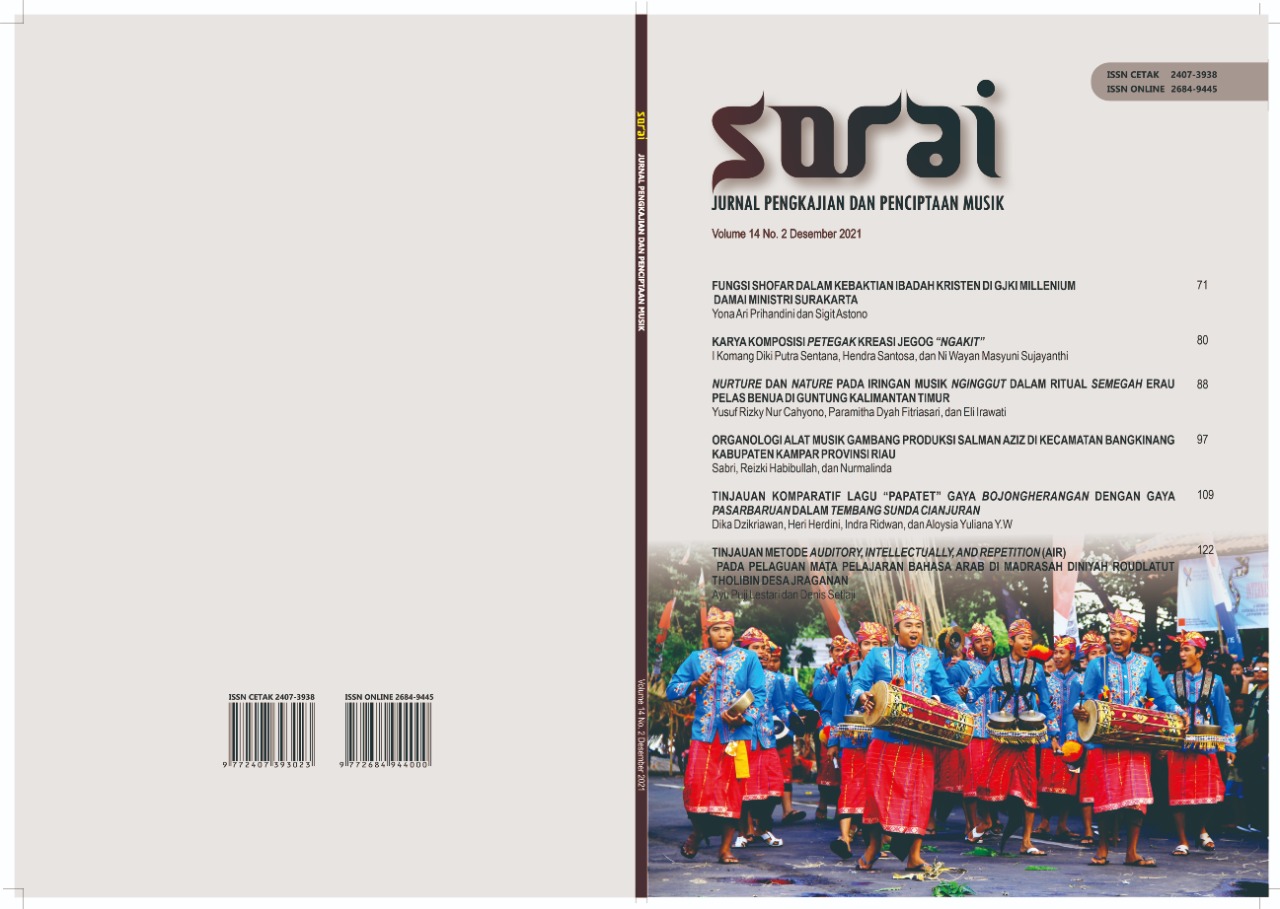NURTURE DAN NATURE PADA IRINGAN MUSIK NGINGGUT DALAM RITUAL SEMEGAH ERAU PELAS BENUA DI GUNTUNG KALIMANTAN TIMUR
Main Article Content
Abstract
Nginggut music tradition in the Semegah ritual is one of the cultures that has been maintained until now. Nginggut and Belian musicians are important elements of bonding, harmony, magical and sacred atmosphere in the implementation of rituals. The ritual implementer must be a person who is considered capable of carrying out the ritual and has physical, psychological, and reasoning endurance. This view forms the social construction of the paradigm that men are people who deserve to carry out rituals, both as leaders and musicians. Meanwhile, women are the people who support the ritual, because they are considered naturally unable to fulfill the requirements as ritual implementers. The theory of nurture and nature states that the emergence of a construction as well as a social paradigm is determined through the biological type of human that is obtained from birth. Based on this theoretical statement, the author examines the relationship between Ngiggut music which places men as performers of rituals, as well as the relationship between nurture and nature that forms the structure of society so that it has an influence in the aspect of Ngiggut music on Semegah rituals.
Keywords: Nginggut music, Semegah ritual, Male
Downloads
Download data is not yet available.
Article Details
Issue
Section
Articles

This work is licensed under a Creative Commons Attribution-ShareAlike 4.0 International License.
Copyright
Authors who publish to Sorai: Jurnal Pengkajian dan Penciptaan Musik agrees to the following terms:
- Authors retain copyright and grant the journal right of first publication with the work simultaneously licensed under a Creative Commons Attribution License (CC BY-SA 4.0) that allows others to share the work with an acknowledgment of the work's authorship and initial publication in this journal.
- Authors can enter into separate, additional contractual arrangements for the non-exclusive distribution of the journal's published version of the work (e.g., post it to an institutional repository or edit it in a book), with an acknowledgment of its initial publication in this journal.
- Authors are permitted and encouraged to post their work online (e.g., in institutional repositories or on their website) before and during the submission process, as it can lead to productive exchanges, as well as earlier and greater citation of published work.
